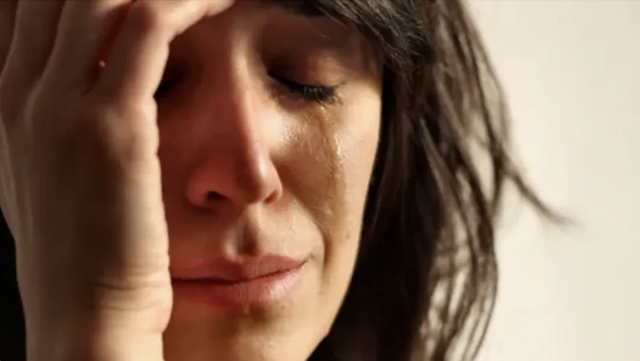Explaining The Chosen: Season 1, Episode 3

This post contains affiliate links. I only advertise items I personally recommend and may receive a small commission from qualifying purchases. For more information, visit our Affiliate Information Page.
There are many things I’ve found in The Chosen series that can be explained from a Hebrew Roots viewpoint. If you missed my other posts explaining The Chosen, you can read them here:
Explaining The Chosen: Season 1, Episode 1
Explaining The Chosen: Season 1, Episode 2
And if you haven’t seen The Chosen, watch it here! You won’t regret it!
In this fun episode, called Jesus Loves the Little Children, we see Jesus hanging out with the children of Capernaum at his camp outside the town.
Aside from being light and amusing, this episode contains a few prayers I will explain here, as well as some new Hebrew names.
Capernaum
A city under Roman rule in Jesus’s time, Capernaum was also the place Jesus spent much of his ministry. The word Capernaum is made up of two Hebrew words: Capar, meaning village and Nahum meaning “to be sorry”. The word Nahum can also be to have compassion or to comfort. So Capernaum can also be called the “village of comfort”.
Abigail
It’s a beautiful name but do you know the story behind it? You can read it in 1 Samuel 25. Basically, her husband, Nabal was not a good man but her intelligence and quick thinking saved them when her husband was rude to King David’s servants. After Nabal died, David took Abigail as one of his wives.
The meaning of the word Abigail is “my father is joy”. It’s made up of “Avi” (אֲבִי), meaning “my father” and “geel” (גִּיל), meaning “joy”.
Joshua
It’s so cute that Jesus calls the little boy “Joshua the brave”. It makes sense that Jesus shows special attention to the little boy’s name because it’s the same as Jesus’s!
The name Joshua comes from the Hebrew verb yasha (יָשַׁע), which means “he saved”, combined with God’s name, יהוה (sometimes pronounced Yahweh). So, put together, it means “God saves”. This name in Hebrew is Yehoshua, which is Yeosus in Greek, which is where we get the name Jesus.
Jesus’s Prayer When Going to Bed
Twice in this episode, Jesus is shown going to bed and reciting the same prayer both times. The prayer he says is one of the bedtime prayers Jewish people pray each night. It’s part of the Bedtime Shema.
It goes like this:
Blessed are You, Lord our God, King of the universe, who brings sleep to my eyes, slumber to my eyelids.
May it be Your will, Lord my God and God of my ancestors, that I lie down in peace and that I arise in peace.
Let my sleep be undisturbed by troubling thoughts, bad dreams, and wicked schemes.
May I have a night of tranquil slumber.
May I awaken to the light of a new day, that my eyes may behold the splendor of Your light.
Praised are You, Lord whose glory gives light to the entire world.
This blessing is then followed by the Shema in response to the command to “talk of these words when you lie down…” (Deut. 6:6-7).
The HaMotzi
Before eating, we see Jesus recite this prayer:
Blessed are You, Lord our God, King of the universe, who brings forth bread from the earth.
I covered this prayer in detail in my post about The Chosen: Season 1, Episode 2 when I explained the aspects of the traditional Shabbat being observed in that episode. But the Hamotzi isn’t only said before a Shabbat meal, it’s said before all meals to thank God for his provisions.
The Shema
Jesus asked the kids if they know how to pray the Shema and they all responded by reciting it. The Shema is one of the most important prayers in Judaism but has such deep significance for us as Christians too! From Deuteronomy 6:4-9, this is the answer Jesus gave when he was asked what the greatest commandment is!
Orthodox Jewish people typically recite the Shema at least twice daily to stay focused on God and on what they should be doing with their lives. In addition to Deuteronomy 6:4-9, they also say Deuteronomy 11:13-21 and Numbers 15:37-41. In this episode, the children said the following:
“Hear, Israel! The LORD is our God, the LORD is one! You shall love the LORD your God with all your heart and with all your soul and with all your might. “And it shall come to pass, if you surely listen to the commandments I command you today that you may gather in your grain, your wine and your oil. And you will eat and you will be satisfied. I am the LORD your God who led you from the land of Egypt to be a God to you; I am the LORD your God.” Amen
Deut. 6:4-5, 11:13-15. and Num. 15:41
Behold How Good and How Pleasing Song
The song Jesus sang with the kids near the end of the episode is from verse 1 of Psalm 133. Here’s what they sing on the show:
Behold, how good and how pleasing (kids echo). If brothers could sit together in unity (kids echo). Behold, how good and how pleasing (kids echo)…
This is a Jewish song, commonly sung on Shabbat. In Hebrew, it’s called Hinei Ma Tov (Behold How Good). Here it is in Hebrew:
הִנֵּה מַה טוֹב וּמַה נָּעִים שֶׁבֶת אָחִים גַּם יַחַד
This is pronounced:
Hin-neh mah tov u-mah na-eem. She-vet a-chim gam ya-chad.
Here’s Hinei Ma Tov in both English and Hebrew:
Jesus Jokes With the Boys
When Jesus is asking questions of the children and Abigail answers, he jokes with the boys, “Boys, pay attention. She doesn’t even go to Torah classes”.
Somewhere between the ages of 6 and 9 years old, boys began their spiritual education at Torah school. It used to only be for boys but now girls attend as well. They attend until the age of 12 (girls) or 13 (boys), then have their Bar (boys) or Bat (girls) Mitzvah and then they’re considered similar to adults as far as their faith goes.
I can’t wait to see what the makers of The Chosen included in future episodes! Stay tuned for Explaining The Chosen: Episode 4: The Rock On Which It Is Built!
Do you love Israel?
Need a gift for someone who does?
Experience the Holy Land without leaving home with Artzabox.
Use coupon code Hebrew25 for a 25% discount on your order!




